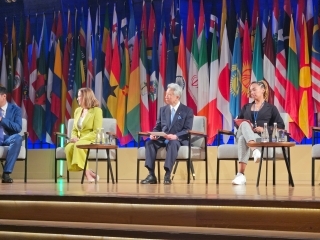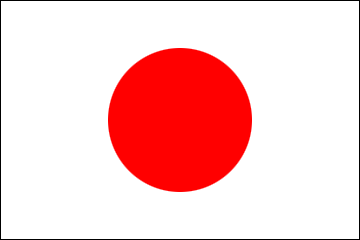24 July 2024: Speech of Mr Masahito Moriyama, Minister of Education, Culture, Sports, Science and Technology, during the UNESCO "Change the Game" Global Sport Conference
2024/7/24

UNESCO “Change the Game” Global Sport Conference
Speech by Mr. Masahito Moriyama, THE MINISTER OF EDUCATION, CULTURE, SPORTS, SCIENCE AND TECHNOLOGY(Japan)
Question from Moderator of the Session1 of the Ministerial Forum
Minister Moriyama, building “legacy” through sport has been an important topic for Japan, especially in the context of the Tokyo 2020 Olympic and Paralympic Games. UNESCO shares this objective, with an emphasis on the need for sustainability and legacy planning in major sport event.
Can you speak more on the sustainability that went into the planning of Tokyo 2020, and the initiatives carrying on the sporting legacy of the Games?
Answer from Minister of Sports, Japan
Speech by Mr. Masahito Moriyama, THE MINISTER OF EDUCATION, CULTURE, SPORTS, SCIENCE AND TECHNOLOGY(Japan)
Question from Moderator of the Session1 of the Ministerial Forum
Minister Moriyama, building “legacy” through sport has been an important topic for Japan, especially in the context of the Tokyo 2020 Olympic and Paralympic Games. UNESCO shares this objective, with an emphasis on the need for sustainability and legacy planning in major sport event.
Can you speak more on the sustainability that went into the planning of Tokyo 2020, and the initiatives carrying on the sporting legacy of the Games?
Answer from Minister of Sports, Japan
- Thank you for the question. First, on behalf of the country that hosted the last Olympic and Paralympic Games, I am honored today to share with the world the legacy of the Tokyo Games. As you know, Tokyo Games were postponed due to the COVID-19 pandemic, and hosting the Games itself was in doubt. Nevertheless, we successfully hosted a safe and secure games thanks to the efforts of many people involved. Tokyo Games demonstrated the value of sport to the world under the pandemic. It is a great pleasure that its legacy is passed on to the Paris Games.
- Talking about sustainability, around five years prior to the Tokyo Games, we set five major sustainability themes under the concept of “Be better, together” then began our efforts. As a result, we achieved many goals such as zero-carbon Games and 100% electricity procured from renewable resources for the Games.
- A symbolic project was that all the 5,000 medals were made from post-consumer electronics such as smartphone donated by people across Japan. Regarding the gender equality, Tokyo Games reached all-time high of 48% of women’s participation. I believe it paved the way for the Paris Games to achieve full gender parity.
- Furthermore, toward an inclusive society, the entire nation was involved in efforts to create universal design cities. In the cities, everyone can move around safely and comfortably. We also created an inclusive mindset where everyone respects and supports each other, and we promoted para-sports.
- As a result, urban planning based on universal designs have advanced dramatically through barrier-free renovations of transportation facilities, roads, hotels, restaurants, and stadiums across the country. In addition, it has resulted in a substantial increase of para-sport practitioners and fans, and the number of people with disabilities employed by private companies.
- In this way, Japan positioned the Tokyo Games as a “showcase for sustainable societies” and legacy to be given back to the people’s lives and passed on to Paris Games and beyond.
- Next, I would like to introduce two high-impact initiatives led by my ministry, which carry on the sporting legacy of the Games.
- The first keyword is “From High Performance to Life Performance”. We are making available to the general public the scientific knowledge gained in the area of high performance sport through the Tokyo Games. We think this will contribute to improving the health and well-being of the entire nation.
- At the Tokyo Games, a variety of sport medicine professionals collaborated seamlessly to provide expert support to athletes in the Olympic athletes’ village. One result was that a great many scientific findings were obtained that will contribute to improving athletes’ motor functions and skills. After the Games, we conducted a research project by applying these findings to citizens and found that it reduced in lower back pain and improved in the motor functions.
- Secondly, we launched “Sport for Tomorrow” program in 2014 as Japan-originated international exchange and cooperation program. It aims to spread the value of sport across all generations and countries. We have shared the value of sport with more than 13 million people in 204 countries and regions so far.
- We are currently focusing on supporting overseas athletes and capacity building of sport professionals. For example, we invite Ukrainian national teams such as Judo, gymnastics, para triathlon to Japan to support them in joint training with Japanese athletes and participating in competitions. Some of these Ukrainian athletes will compete in the Paris Games.
- Finally, as the host country of the Tokyo Games and future major sports events, Japan is committed to undertaking world-leading initiatives to achieve sustainable society through sport. Thank you.
